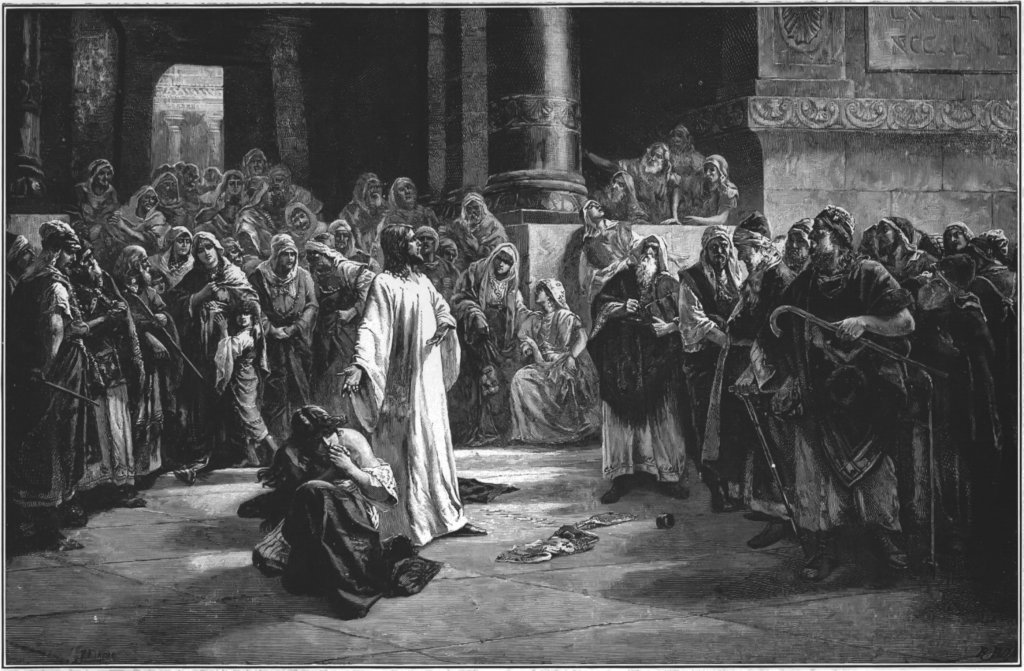The Great Omission
The Great ‘Omission’- and the rise of the non-evangelical, evangelical church.
About a decade ago I was deeply impressed by a pantomime presented at a Christian youth camp. The drama told the story of a lighthouse ‘life cycle.’ The lighthouse team began their task with great zeal and focused vision. Their vision was simple and obvious: create an edifice which would serve the purpose of aiding sailors stranded at sea. Their collective energy was spent in 2 main areas: maintaining a bright light to direct sailors from the dangers of the ocean, and keeping lifeboats ready for sailors caught in the clutches of a treacherous sea. Time and sea eventually eroded their sense of purpose and mission. By the end of the pantomime the lighthouse light had been extinguished and the lifeboats were laden with barnacles. Energy and purpose was now redirected to the comforts of the lighthouse crew. Their lounge and dining facilities reflected this change in mission and purpose.
Most evangelical churches have Matthew 28:16-20 (also known as the ‘Great Commission’) in their mission or purpose statement. A purpose statement explicitly states an organization’s raison d’ être (purpose for existence). The Great Commission should be in the purpose statement of every faithful, biblically based, church. The Great Commission expresses our Lord’s goal for the church, it extends Christ’s mission to His body, the church. The Great Commission should remind the church of God’s salvific plan culminating in the life, death and resurrection of the Messiah Jesus and the church’s obligation to be the herald of that salvific news. “The saying is trustworthy and deserving of full acceptance, that Christ Jesus came into the world to save sinners….” (1 Tim. 1:15)
The evangelical church has in large part extinguished her lamps; her lifeboats are in disrepair. This blatant failure and reorientation has taken place largely on two distinct fronts. The light of the gospel has been dimmed by both a dismemberment of the good news as well as an evangelical retreat into the monastic citadels of a homogeneous Christian community.

The dismemberment of the gospel is not the focus of this essay, though the exclusion of this phenomenon would leave a crater upon the landscape of this story. In short, it has become rare to hear the biblical gospel truthfully and faithfully expounded. The wickedness of man’s heart, the holiness of God and the repentance and faith required by God in order for true reconciliation and salvation to occur are in large measure jettisoned cargo. Mercy, grace and pardon are often preached at the exclusion of one’s just condemnation before Holy God with the effect that the love and mercy of God are hollow and sterile words, devoid of power. Sin, judgment and Godly guilt have become unholy relics of a past “unsophisticated” era. These have been replaced with a church that is consumer driven and exists to pander to the fancies of a congregation half drowned in spiritual mediocrity. It is a gospel that takes it queues from surveys and the perceived needs of people, rather than from God’s Word and thus God’s heart.
The second front of reorientation is more practical in application. Simply put, churches are not evangelizing their ‘Jerusalems’. Churches are not “going” and engaging their communities. They are not ‘making disciples’ in their respective neighborhoods. If the purpose of the church is in part to ‘make disciples of all nations,’ what is all the activity in the church about? Seminars, Bible studies, commentaries, Bible classes, DVD series, fellowship, children’s choirs, adult choirs, committees, men’s classes, women’s classes, youth classes, children’s classes, infant classes, more Bible studies, lunches, dinners, breakfasts, books, committees, meetings, more seminars,……what is their purpose? Many Christians have sat through decades of Bible study and have never discipled an unbeliever from conversion to maturity nor are most capable of such. The only groups actively engaging most American communities are Arian and Polytheistic heretics.
The Church’s drift in focus is primarily spiritual. It is no coincidence that the church enjoys its comforts in its multitude of busy activities which systematically exclude the Great Commission. Active participation in the Great Commission requires a spiritual church ready to engage a non Christian world, not one content simply to bask in ‘sound teaching,’ luncheons, debate the fine points of theology, and sit ‘respectfully’ while the hired staff perform for the ‘audience.’
Many evangelical churches have foreign mission boards which often qualify the church or denomination as a Great Commission church. The Great Commission then becomes a picture in the foyer with an arrow to a foreign country. The Great Commission becomes a special annual offering. It becomes the ‘outsourcing’ to an elite professional ‘foreign legion’ of Christian mercenaries hired out to fulfill the Great Commission in ‘foreign’ lands. In the meantime the local congregation (pastors, leaders included) have rarely if ever shared the story of guilt, sin, repentance, faith and forgiveness with the people in their respective “Jerusalems.”
Another reason the ‘evangelical’ church is not evangelical is because the culture does not sanction evangelism. American culture endorses food pantries, clothes closets, and a variety of socio-economic assistance by the church, but not evangelism. Actively engaging one’s community with the message of the cross is strictly off limits. The ‘spirit’ of this cultural opposition is so pervasive that many ‘evangelical’ churches would decry any form of face to face gospel witnessing.
I had an Iranian friend in San Francisco who had been a member of an evangelical church in Iran. His pastor’s heart was cut out of his chest because the church actively engaged its community with the good news of repentance and faith in Jesus. My friend told me many churches exist in Iran unmolested, provided they do not evangelize their communities. This pattern was similar in the former communist East European countries.
The enemy isn’t impressed with heads swollen with Bible knowledge, the latest seminar, or our multitude of religious activity. The ‘ancient serpent’ opposes the church faithful to Jesus’ commission because it is the epicenter of spiritual warfare. It is the place where lives are translated from darkness to light, from enmity to peace and from hell-fire to heaven. It is the battle for the souls of men.
The vast majority of real American lighthouses are inoperative because of advances in navigational technology. They are mere tourist sites. Empty shells. A reminder of times past. The evangelical church in America has likewise lost its principal purpose and has contented itself in a dizzying labyrinth of barren religious commotion, “having the appearance of godliness, but denying its power.” (II Tim.3:5)
The loss of vision and purpose is primarily a product of spiritual drift. Churches which blaze forth with the fire of the gospel in their communities will need to be churches with members consecrated to the Lord, not content to be entertained by the professionals. Principally, these will be churches which wait on the Lord in prayer and fasting, which provides the intimacy with the Savior required for love, passion and obedience. They will need to be led by men and women of prayer with a zeal and fervor for lost souls which exceeds the opposition from both within and without.
Sky Cline is a graduate of William and Mary and Duke University. He is the owner of evangelicalBible.com & Schuyler Publishers.




